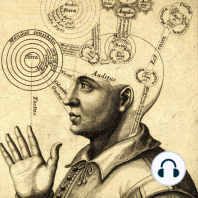168 min listen

Podcast for Social Research, Episode 67: What is Critical Theory?
Podcast for Social Research, Episode 67: What is Critical Theory?
ratings:
Length:
118 minutes
Released:
Jul 28, 2023
Format:
Podcast episode
Description
In episode 67 of the Podcast for Social Research, a live recording of the opening panel of two-day symposium Frankfurt School and the Now, BISR’s Ajay Singh Chaudhary and Rebecca Ariel Porte and guests Seyla Benhabib and Aaron Benanav answer the perennial question, What is Critical Theory? As they trace a line from Kant to Marx to the classic and latter-day Frankfurt School critical theorists, they grapple with a wide range of attending questions: How can we understand the concept of critique itself? How does philosophy relate to social theory? What are we to make of critical theory's fraught history as a practice of negativity (the source of many of its most piercing insights and also of its perceived troubles for praxis)? Must criticism provide a solution? Or is the critique of “progress” as urgent as ever? In the 21st century, what remains of critical theory—and what doesn’t?
Released:
Jul 28, 2023
Format:
Podcast episode
Titles in the series (99)
The Podcast for Social Research, Episode 28: Theory on the Radio by The Podcast for Social Research